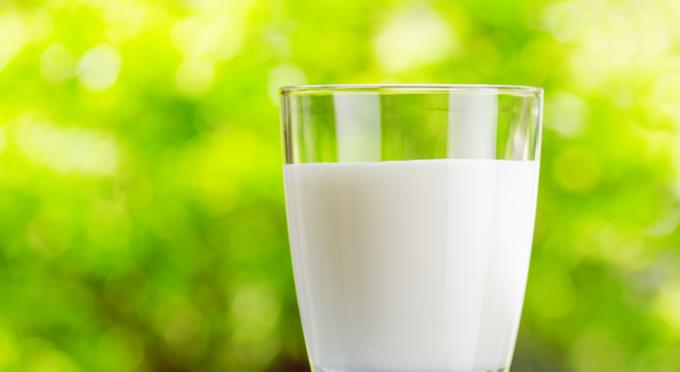Pregnant women take care of their teeth from the time of being pregnant to the whole period of pregnancy so that the baby will not be affected by the mother's gum disease.
During pregnancy, a large change in hormones in the body can cause gums to become irritated and inflamed. If you notice red, swollen, or bleeding gums when you brush your teeth, it could be because plaque has accumulated on the teeth too much. Careful and gentle brushing can prevent gingivitis caused by plaque buildup.
However, oral care at this time should be noted because it may affect the fetus and the ability to give birth. Many studies have shown that pregnancy gum disease is closely related to premature birth and low birth weight, making babies more susceptible to health risks. According to statistics, there are 18/100 premature babies born to mothers with periodontal disease.
See a dentist
For dental problems no longer an obsession, you should treat dental problems before pregnancy. This is because during pregnancy you'll experience conditions like morning sickness and fatigue. If you still face dental problems, you will have more problems.
During pregnancy
If you are pregnant or suspect you are pregnant, tell your dentist. In addition, during your visit, you should also ask your dentist to check your gums and ask for care during this time. The dentist will prescribe the right drugs for pregnant women. Certain drugs, such as tetracycline antibiotics , can affect the baby's teeth development.
Morning sickness
During pregnancy, you may experience morning sickness or stomach reflux (heartburn). When you vomit, stomach acid can get onto your teeth, eroding your teeth and increasing the risk of tooth decay.
Wait at least 30 minutes after vomiting before brushing. This will give the enamel time to recover from the stomach acid sticking.
Rinse your mouth with water after vomiting to wash off the acid. Then, brush your teeth with fluoride toothpaste to clean the oral cavity and help strengthen the enamel.
Brushing is very important

To avoid plaque buildup, brush your teeth twice a day: after breakfast and before bed. If you feel nauseous while brushing your teeth, use a small-tipped toothbrush designed for children and brush your teeth at a time when you don't feel nauseous.
Not using toothpaste when brushing your teeth can also help. After brushing your teeth, apply a layer of fluoride toothpaste to your teeth and do not wash it. Return to using toothpaste as soon as possible.
Fluoride is present in toothpaste
Fluoride keeps teeth strong and prevents tooth decay. Fluoride present in toothpaste or tap water is not harmful to an unborn baby.
Dental X-ray
Avoid dental X-rays during pregnancy. If a dentist orders a scan, you need special shielding and care.
Pay attention to food
Foods that contain sugar, acids (such as orange juice) can increase the risk of tooth decay
Choose snacks that are low in sugar, salt, and fat and high in fiber
Rinse your mouth with tap water between meals.
Calcium

Calcium is very important for your baby's teeth and bones. About 4 months, your baby's teeth and bones begin to develop. Therefore, the foods you eat should be high in calcium and phosphorus. Around 7 months, babies need more calcium and phosphorus. Dairy foods are good sources of calcium and phosphorus.
Milk and dairy products are excellent sources of calcium. Choose low-fat and low-sugar dairy options.
If you can't drink or eat dairy products like cheese and yogurt, choose products with a high calcium content (like soy milk with added calcium). Please consult your doctor for further advice.
Check the nutritional information on the product's packaging to see if it contains calcium.
The amount of calcium that pregnant and lactating women need per day is 1,000mg. For pregnant teenagers, this amount is between 1,000 and 1,700mg.
The following foods are high in calcium:
1 cup (250ml) low-fat milk - 360mg calcium
1 jar (200g) of low-fat or low-fat yogurt - 360mg of calcium
1 tablet (30g) low-fat cheese - 260mg of calcium
100g of salmon with bones - 300mg of calcium
Half a cup of spinach - 100mg of calcium
Is dental treatment safe during pregnancy?
Depending on your specific case, dental treatment can be safe for pregnant women. However, tell your dentist that you are pregnant if you are too young to notice. When sitting in a chair for dentist treatment, you can add a pillow on the hip to feel more comfortable.
Bacteria cause tooth decay in babies
Babies are born without the bacteria that cause tooth decay in their mouths. However, everyone except for babies has a certain amount of cavity bacteria. The bacteria are passed on from person to person.
Bacteria that cause tooth decay can be passed from caregiver to baby. Your baby's teeth are at risk of becoming infected with these bacteria from when they grow.
Caregivers, especially mothers, can limit the transmission of cavity bacteria to babies by keeping their teeth healthy. Brush your teeth after breakfast and at bedtime, floss regularly. Choose healthy foods, limit foods high in sugar, and check your dentist regularly.













